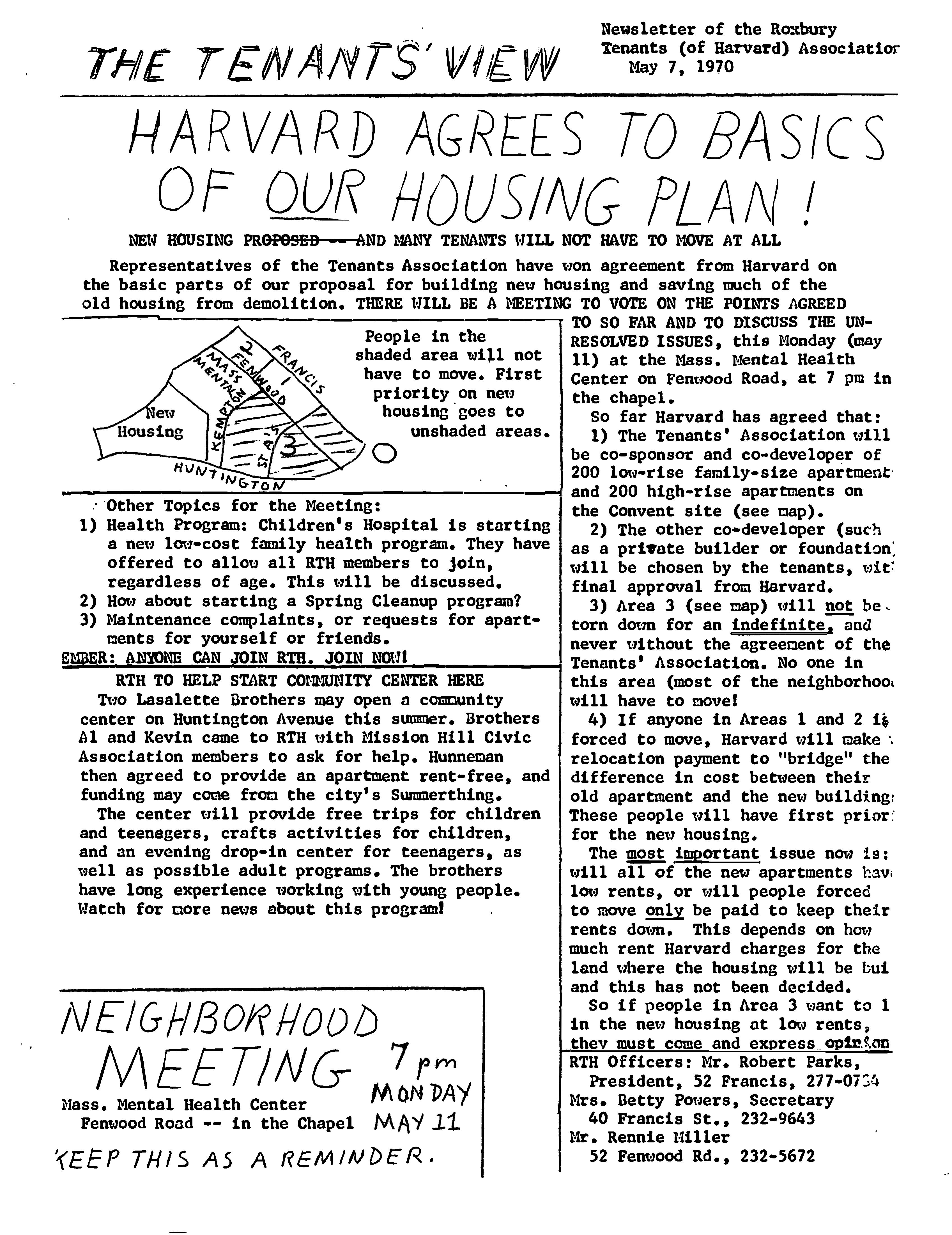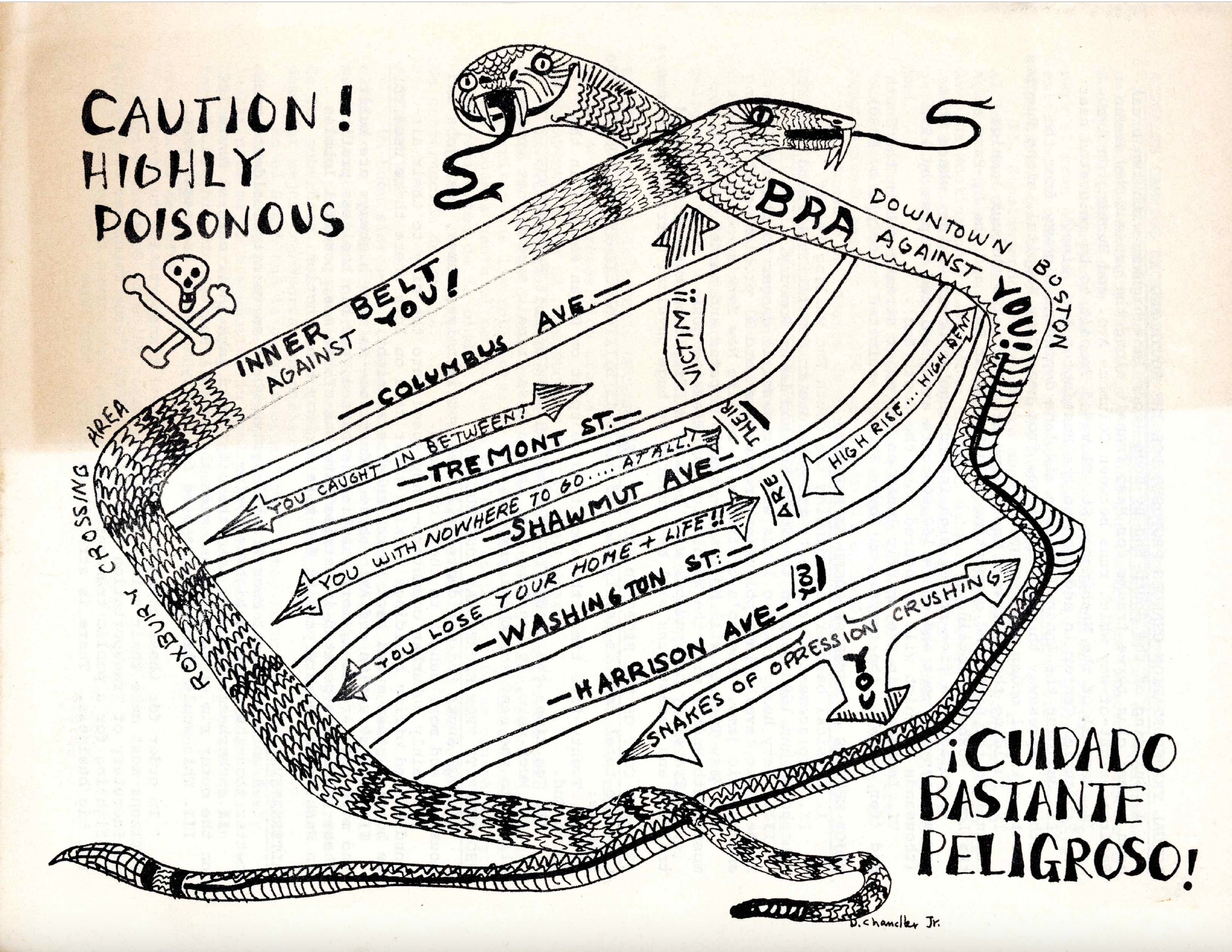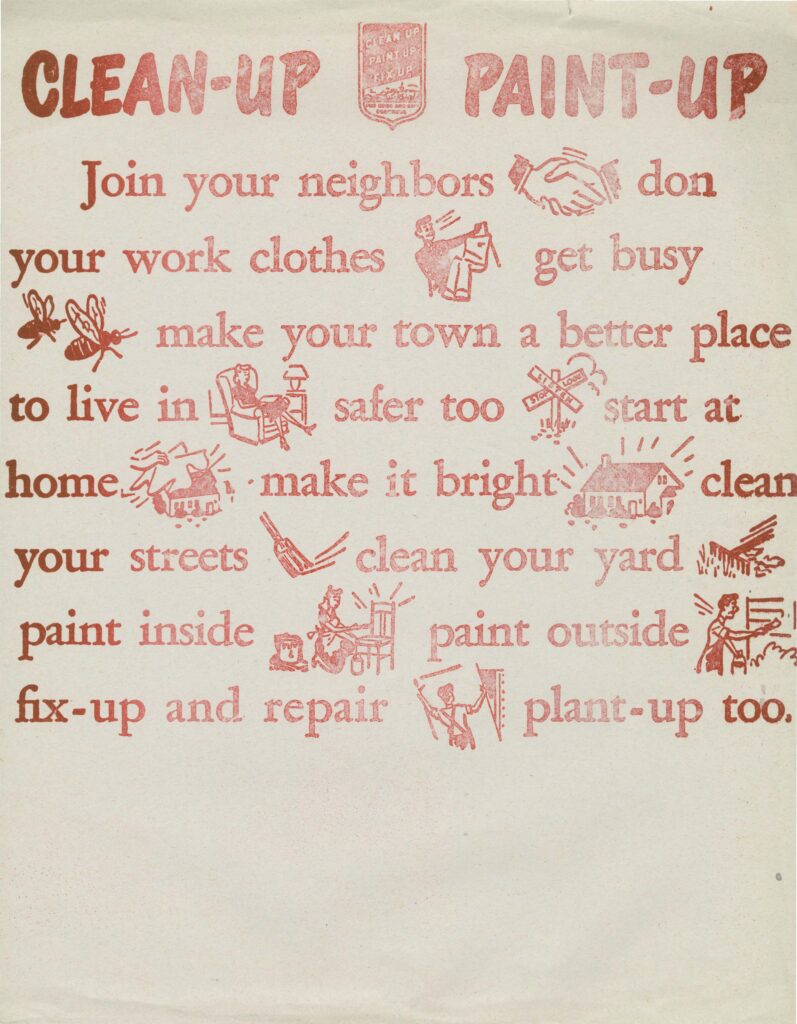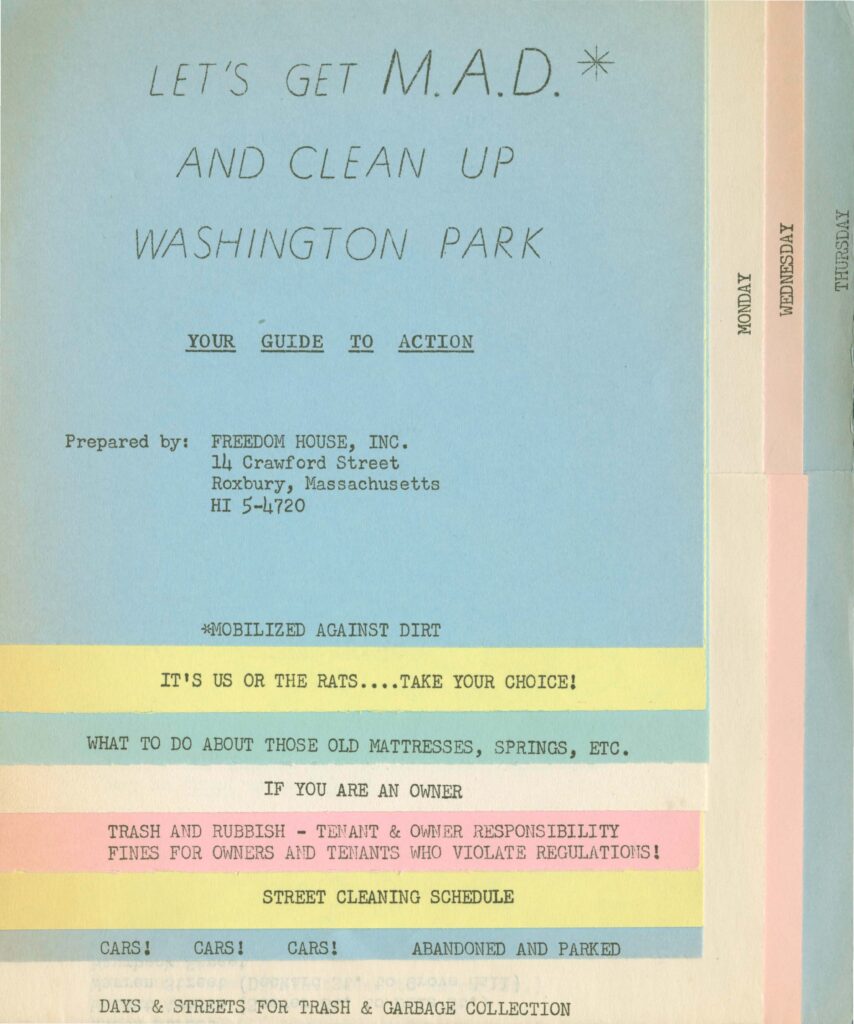Ready to Research: Roxbury Tenants of Harvard records (Jeane Neville) and Ken Kruckemeyer papers
Two recently processed collections document the organizing power of everyday Bostonians who fought development proposals that would have negatively impacted their neighborhoods.
Roxbury Tenants of Harvard records (Jeane Neville)

The Roxbury Tenants of Harvard (RTH) formed in 1969 to oppose Harvard University’s proposed expansion into the Mission Hill neighborhood, which would have displaced residents. RTH was successful in pressuring Harvard to build a relocation housing development instead of a teaching hospital complex.
The RTH collection captures the unfolding of events, and the negotiations between RTH and Harvard University, over the course of the 1960s and ’70s through meeting minutes and agendas, notes, reports, flyers, canvas sheets, writings, correspondence, and media coverage. Jeane Neville, a Radcliffe student in the late ’60s, became involved in organizing the Mission Hill residents; these records were retained by her and donated to the Northeastern University Archives and Special Collections by her brother Padraic Neville after her death.
To learn more about the Roxbury Tenants of Harvard (Jeane Neville) records, explore the finding aid.
Ken Kruckemeyer papers

An architect by training, Ken Kruckemeyer began organizing around issues such as transit and housing in the 1960s after moving to the South End. He soon became involved in the local anti-highway movement of that period. His papers document anti-highway activism, as well as activism around Tent City and Melnea Cass Boulevard. They also document the planning, environmental impact studies, and construction of the Southwest Corridor Project, for which Kruckemeyer served as project manager.
Explore meeting materials, reports, studies, notes, correspondence, newsletters, flyers, and more in Kruckemeyer’s papers. To learn more about what’s in the collection, check out the finding aid.
To access the Roxbury Tenants of Harvard (Jeane Neville) records or the Ken Kruckemeyer papers, email Northeastern University Archives and Special Collections at archives@northeastern.edu.

